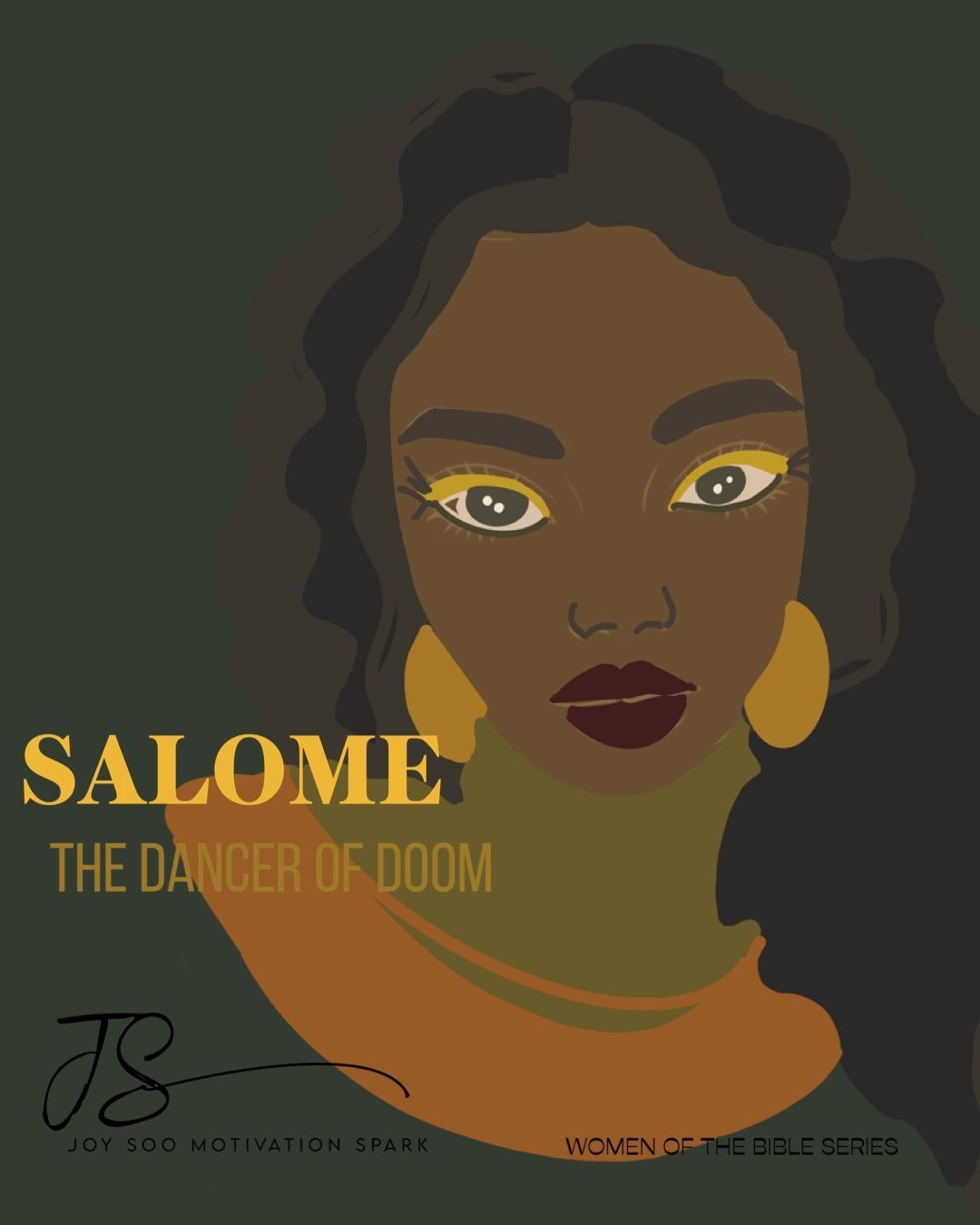
SALOME
In the Gospel of Matthew, you can find the relevant passage in Matthew 14:1-12. Here, the account describes how Herodias's daughter danced for Herod Antipas at his birthday banquet, leading her to request, at her mother's prompting, John the Baptist's head on a platter.
The Gospel of Mark provides a similar account in Mark 6:14-29. This passage offers more detail about the dance and the resulting request for John the Baptist's execution, prompted by Herodias's desire for revenge against John's condemnation of her marriage to Herod Antipas.
Once in the ancient land of Galilee, there lived a young woman named Salome, daughter of Herodias and stepdaughter of Herod Antipas, the ruler of the region. Herodias, Salome's mother, had stirred controversy by marrying Herod Antipas, for it was a union that provoked the ire of John the Baptist, a revered prophet known for his boldness and unyielding dedication to truth.
John openly criticized Herodias's marriage as unlawful, which fueled Herodias's desire for retribution. Yet Herod Antipas found himself entranced by John's words, confounded by the prophet’s courage and wisdom, despite holding him imprisoned.
One evening, a lavish banquet was held in Herod's palace to celebrate his birthday. The halls were adorned with opulence, and the air filled with music and laughter. Amidst the revelry, Salome, known for her grace and beauty, was called upon to perform a dance.
As she moved with elegance and charm, Herod was so delighted that he promised her anything she desired, even up to half his kingdom. Salome, unsure of what to request, turned to her mother for guidance. With calculated determination, Herodias seized the opportunity, instructing Salome to ask for the head of John the Baptist on a platter.
Though the request caused Herod Antipas to pause, for he feared John's influence among the people, his oath and the presence of his guests compelled him to comply. Thus, in the depths of the prison, the sentence was carried out.
As Salome received the grim gift she had requested, an unsettling realization settled upon the assembly. Though the dance was meant to captivate, it ended with a silence heavy with consequence, echoing beyond the palace walls.
Salome's story, though shrouded in the shadows of her mother's vengeance and the political intrigues of her time, serves as a testament to the power of influence and the enduring impact of choices made in the grip of momentary desires.
DISCUSSION STARTERS
1. What role does Salome play in the broader narrative of Herodias and John the Baptist, and how does her involvement influence the outcome of events?
2. How might Salome's actions be understood differently if viewed through the lens of agency versus influence, particularly considering her relationship with her mother, Herodias?
3. In what ways does the story of Salome highlight the themes of power, manipulation, and innocence in the context of familial and political dynamics?
PRAYER
Heavenly Father,
In reflecting on the story of Salome, we seek Your wisdom to guide our desires and decisions. Grant us the clarity to discern right from wrong and the courage to resist the pressures that lead us astray. May we use our influence with integrity, always striving to align our actions with Your will. Help us to learn from the past and walk the path of righteousness with humility and grace.
In Your name, we pray,
Amen.